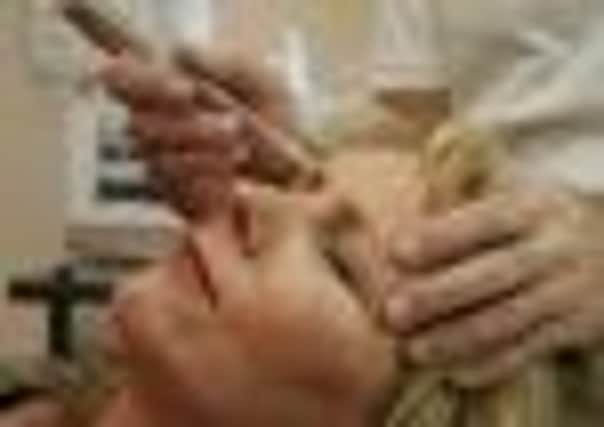‘Botox parties’ at home must be banned, claim medics


So called “Botox parties” or “filler parties” – where groups of friends gather to receive the treatments at home – are “wholly incompatible” with professional standards, the Royal College of Surgeons (RCS) said.
Treatments should only be carried out on licensed premises with resuscitation equipment readily available in the event of an emergency, according to new RCS guidance.
Advertisement
Hide AdAdvertisement
Hide AdMany companies offer “at home” cosmetic treatments, with special discounts for the event host. But the RCS said such parties are “entirely at odds” with the standards set out in its new Professional Standards for Cosmetic Practice.
Cosmetic treatments, including laser treatment and injectable anti-wrinkle treatments, can often be administered by people who have no healthcare training whatsoever. The RCS recommends that only doctors, dentists or nurses who have undergone the appropriate training should be allowed to perform the treatments. And only qualified medical doctors should be allowed to carry out invasive procedures such as breast surgery or liposuction.
They also suggest that time-limited discounts on cosmetic surgery should be banned to prevent people from impulsively buying procedures.
There should be a “cooling off period” of at least two weeks between the initial consultation and the procedure, the guidance adds.
Cosmetic surgeons and other people who administer treatments should consider whether patients need to be referred to a clinical psychologist before going ahead with the procedure, the guidance also recommends.
RCS president, Professor Norman Williams, said: “The profession has a responsibility to provide standards to which we would expect our members to work. We have serious concerns that not all those who offer cosmetic procedures are adequately qualified, or that patients are getting accurate information prior to treatment.
“We hope these standards will feed into the ongoing review of the industry led by the NHS medical director, Sir Bruce Keogh, and improve quality of care for patients going forward.”
Steve Cannon, chairman of the working party which developed the guidance, added: “As the majority of cosmetic procedures are not available on the NHS, we must ensure that commercial interests do not compromise patient safety.
Advertisement
Hide AdAdvertisement
Hide Ad“With the demand for cosmetic surgery and non-surgical treatments rising year on year, it is crucial that the highest level of professionalism is maintained amongst practitioners.”
The British Association of Aesthetic Plastic Surgeons (Baaps) said the new guidance was a “step in the right direction” but called for more stringent recommendations on cosmetic surgery advertising.
Baaps president, Rajiv Grover, said: “The marketing and advertising of cosmetic procedures is neither educating nor informing, but an exercise squarely aimed at achieving sales. This clearly puts economics ahead of patient care.
“The only way to fully protect the public is to have an outright ban on advertising, as seen in some European countries, and which is also applicable to prescription medicines.”